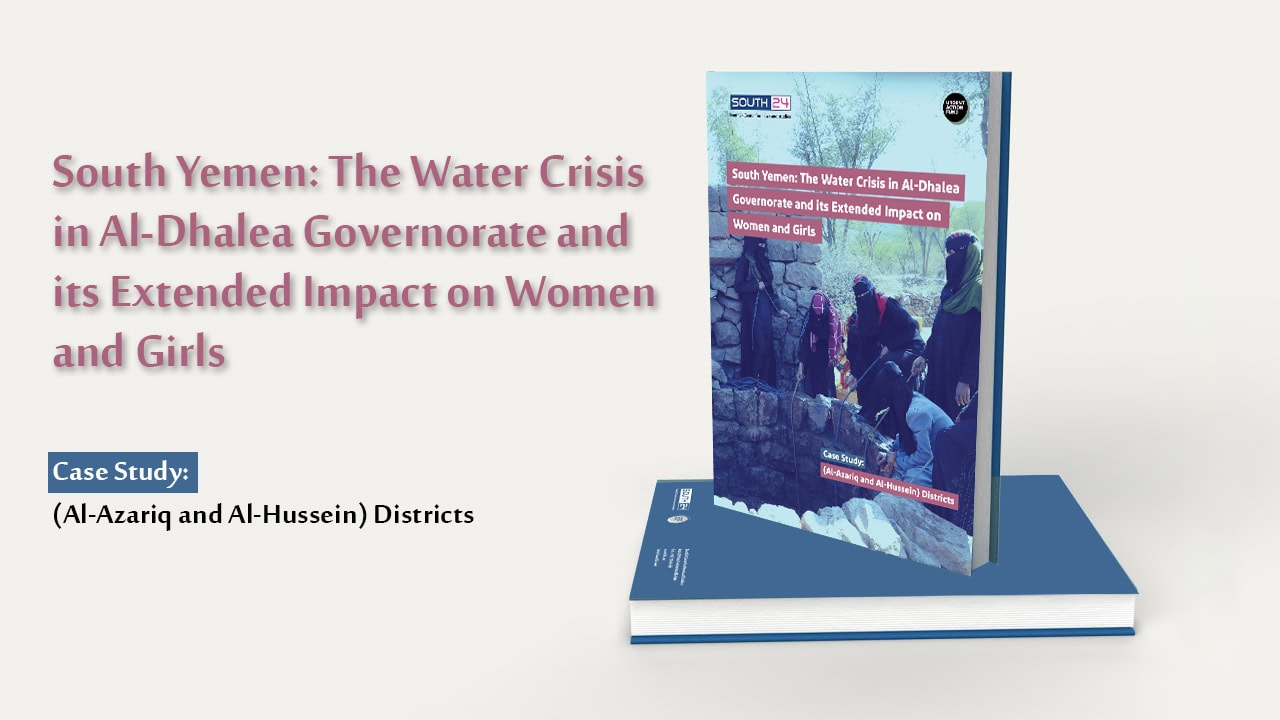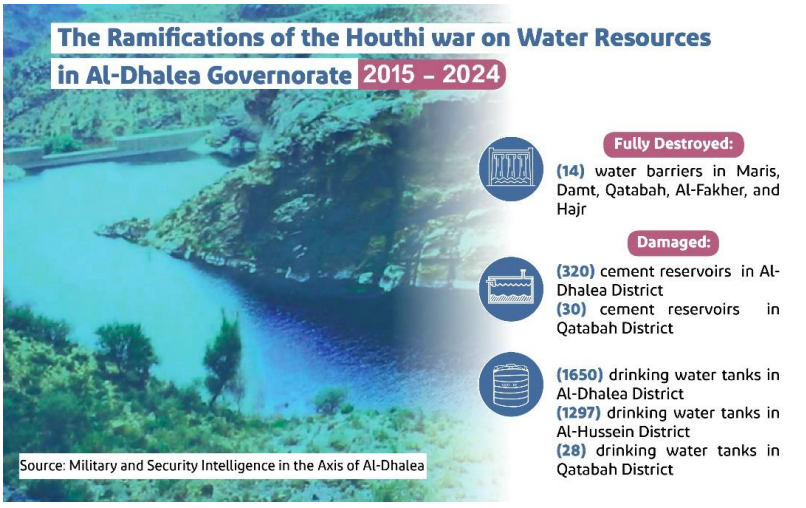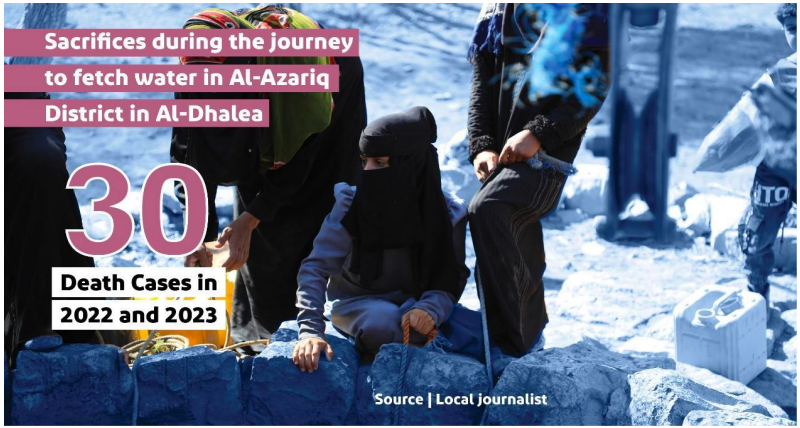
South24 Center
Last updated on: 24-05-2024 at 3 PM Aden Time
South24 Center
Al-Dhalea – A recent field study by the South24 Center has shed light on the escalating water crisis in the Al-Dhalea Governorate of South Yemen, with a particular focus on the districts of Al-Azariq and Al-Hussein. The study, funded by the Urgent Action Fund, reveals a dire situation exacerbated by environmental mismanagement and climate change, posing severe health risks and socio-economic challenges for the local population, especially women and girls.
Key Findings
Rising Fluoride Levels: The study identifies dangerously high levels of fluoride in both surface and groundwater. In several areas in Al-Dhalea Governorate, fluoride levels in groundwater ranged from 1.56 to 13.33 mg/L, with a 60% increase observed in sampled wells. Surface water samples showed fluoride levels between 1.62 to 6 mg/L, marking a 47% rise. In the Al-Hussein district alone, the percentage of fulleride reached 17 mg/L. Such concentrations have led to severe dental and skeletal damage among residents, including children who exhibit blackened teeth and bone deformities.
Health Impacts: The high fluoride levels have resulted in widespread health issues, including kidney failure, joint and muscle pain, fatigue, and muscular spasms. These health problems have particularly affected women, impairing their reproductive health and overall well-being. The contamination is linked to indiscriminate drilling of deep wells and inadequate water management practices.
Environmental and Agricultural Damage: The destruction of the Al-Nukhila Dam in Al-Azariq district has further compounded the water scarcity, damaging 80% of the structure and leading to severe drought conditions. This has adversely impacted agricultural lands and livestock, further straining the livelihoods of local communities.

A diagram that shows the damages caused by the Houthis during the war years against the water sources and reservoirs in Al-Dhalea: ’South24 Center’
Gender Disparities: Women and girls bear the brunt of the water crisis, as they are primarily responsible for fetching water. This exposes them to greater health risks from polluted water and limits their opportunities for education and economic activities. The study highlights an increase in domestic violence and gender-based violence linked to the stress and hardships caused by water scarcity.
 South24 Center
South24 Center
Recommendations
The study provides several recommendations aimed at addressing the water crisis in Al-Dhalea:
International Community and Donors:
Allocate funds for research centers and civil society organizations to conduct specialized studies on the water crisis and its gender-specific impacts.
Press the Internationally Recognized Government to involve women in decision-making processes related to water management, ensuring their needs and concerns are addressed.
Local Civil Society Organizations:
Implement projects focused on tackling water scarcity and its negative effects on the population.
Conduct advocacy campaigns to raise awareness about water conservation and the importance of safe water and sanitation.
Official Bodies in the Government:
Allocate budgets for sustainable water resource projects and conduct comprehensive surveys to identify new water sources.
Implement emergency solutions to mitigate the immediate health and environmental impacts of excessive fluoride contamination.
Sustainable Practices
The study also emphasizes the adoption of environmentally friendly water harvesting techniques. Conventional rainwater harvesting and innovative methods such as fog harvesting are proposed to improve water availability and ensure the sustainability of water resources in the affected areas.
The findings of this study highlight an urgent need for coordinated efforts from both local and international stakeholders to address the water crisis in Al-Dhalea Governorate. By implementing the recommended actions, it is hoped that the health, environmental, and socio-economic conditions in the region can be significantly improved, particularly for the most vulnerable groups.
The project also included the publication of a documentary film - translated into English - that sheds more light on the water crisis in the Al-Hussein and Al-Azariq districts, and its worrying repercussions, particularly on women and girls.
A Documentary Film | Water Crisis in Al-Dhalea Governorate - South Yemen
South24 Center